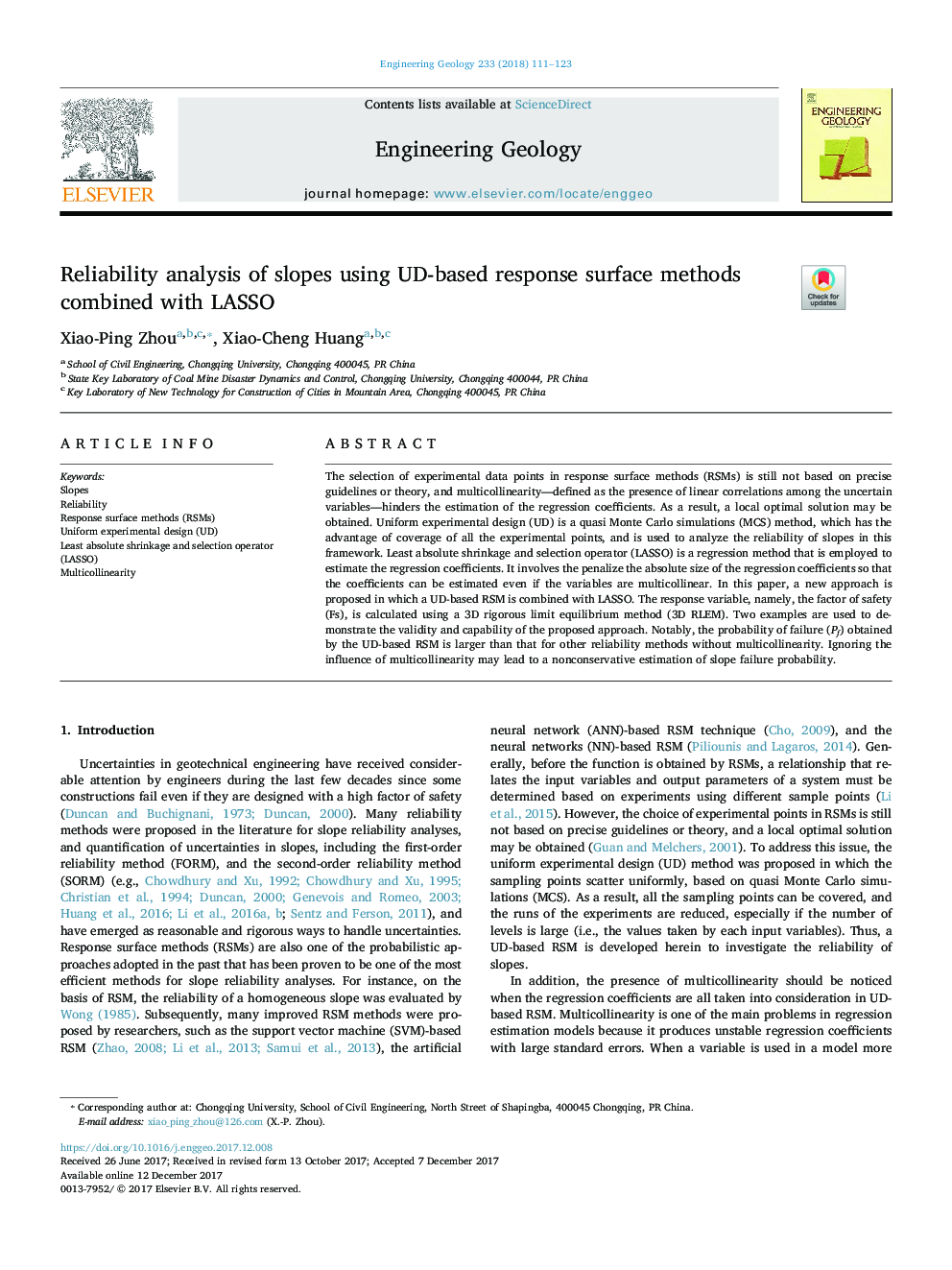| Article ID | Journal | Published Year | Pages | File Type |
|---|---|---|---|---|
| 8915978 | Engineering Geology | 2018 | 13 Pages |
Abstract
The selection of experimental data points in response surface methods (RSMs) is still not based on precise guidelines or theory, and multicollinearity-defined as the presence of linear correlations among the uncertain variables-hinders the estimation of the regression coefficients. As a result, a local optimal solution may be obtained. Uniform experimental design (UD) is a quasi Monte Carlo simulations (MCS) method, which has the advantage of coverage of all the experimental points, and is used to analyze the reliability of slopes in this framework. Least absolute shrinkage and selection operator (LASSO) is a regression method that is employed to estimate the regression coefficients. It involves the penalize the absolute size of the regression coefficients so that the coefficients can be estimated even if the variables are multicollinear. In this paper, a new approach is proposed in which a UD-based RSM is combined with LASSO. The response variable, namely, the factor of safety (Fs), is calculated using a 3D rigorous limit equilibrium method (3D RLEM). Two examples are used to demonstrate the validity and capability of the proposed approach. Notably, the probability of failure (Pf) obtained by the UD-based RSM is larger than that for other reliability methods without multicollinearity. Ignoring the influence of multicollinearity may lead to a nonconservative estimation of slope failure probability.
Related Topics
Physical Sciences and Engineering
Earth and Planetary Sciences
Geotechnical Engineering and Engineering Geology
Authors
Xiao-Ping Zhou, Xiao-Cheng Huang,
